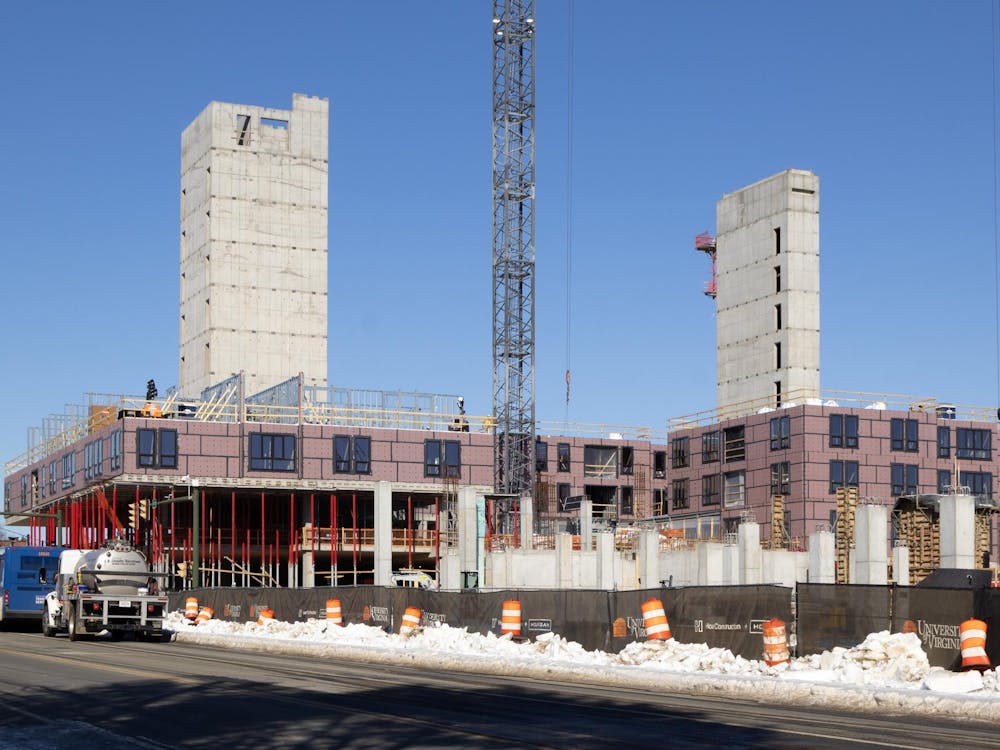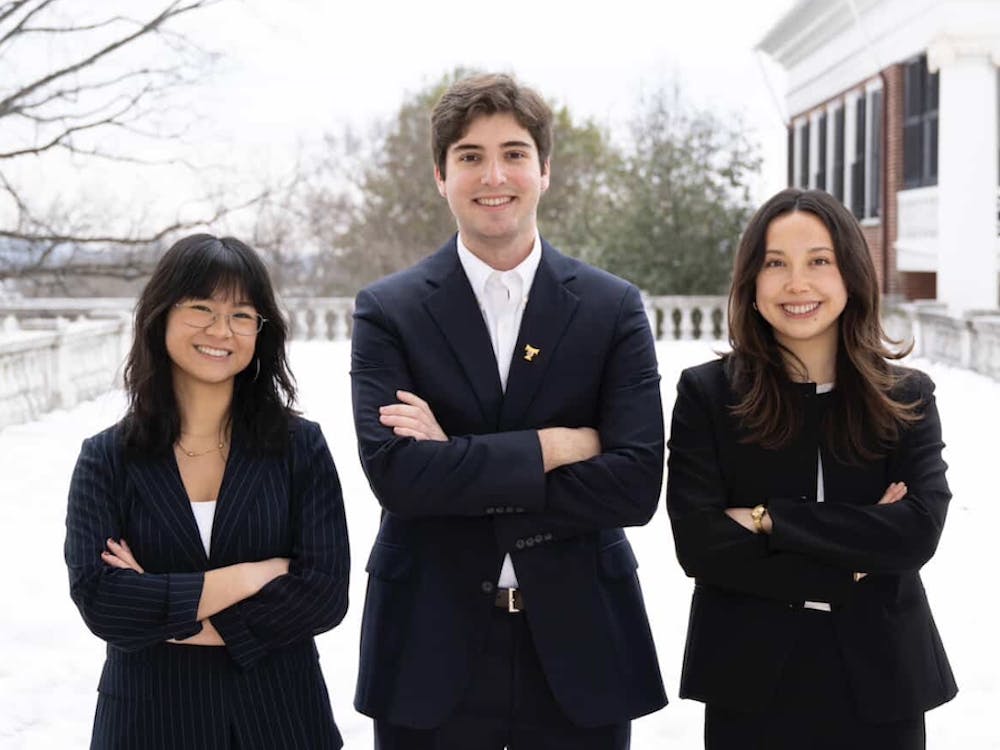As the Democratic presidential campaigns kick into high gear in preparation for the first primaries and caucuses later this month, candidates must reach out to voters in all corners of the country, from the cornfields of Iowa to the snowfields of New Hampshire and eventually to the South.
South Carolina holds its presidential primary Feb. 3 and Virginia and Tennessee vote a week later. All three states are early enough in the nominating process that candidates who genuinely hope to secure the Democratic nomination must pay them heed.
Conventional wisdom holds that campaigning in the South presents unique challenges to the Democratic campaigns because Southerners are culturally, ideologically and demographically different than those candidates will encounter in the rest of the country.
Yet pundits and political strategists tend to disagree about the extent to which this conventional wisdom holds up in practice, with some arguing that in fact voters in Southern Democratic primaries are not very different from Democratic voters in other parts of the country.
Regardless of who is right, representatives from each candidate believe that their candidate has the best message to appeal to Southern Democrats in Virginia and elsewhere.
Courting Conservatives?
One of the most obvious differences between Southerners and other Americans is ideology.
In general, Southerners are more conservative and Republican than Americans in other parts of the country. Since the 1960s the South has gone from being the most Democratic region of the country to an area second only to the Mountain West in its reliability of support for Republicans.
In 2000 George W. Bush carried every Southern state, a result that demonstrated just how Republican the region has become, at least in national elections.
But Politics Prof. Larry J, Sabato said although Southern general election voters are more conservative than the rest of the nation, Southern Democratic primary voters are not necessarily any more conservative than their counterparts in other states. According to Sabato, the most engaged and passionate Democratic voters tend to vote in primaries -- a group whose ideology bears little resemblance to their states as a whole.
"The Democratic electorate in the South is far more liberal than the general election electorate," he said. "Democratic primary electorates are liberal across the country."
Representatives of some campaigns disagree to an extent, arguing that Democratic primary voters in the South are more moderate than their counterparts elsewhere.
For example, Adam Kovacivich, a Virginia spokesperson for Senator Joe Lieberman campaign, said he thinks Lieberman's centrist credentials will help in Virginia.
Kovacivich said Lieberman's support for a strong military as well as his support for the Iraq war will play well in the South among voters he sees as more pro-military than those elsewhere.
"A number of Southern states not only have a strong military presence, but also are very patriotic," Kovacivich said.
Larry Framme, a former chair of the Virginia Democratic Party and a supporter of Senator John Kerry of Massachusetts, also stressed Kerry's moderate positions in explaining his candidate's appeal in Virginia.
"His positions put him at an advantage with Democrats in Virginia," Framme said.
But Sabato said many people overstate the importance of reaching out to more conservative voters in Democratic primaries.
"Those people are confusing primaries and general elections," he said.
Home, Home in the South
Another part of the conventional wisdom of Democratic primary voting is that Southerners tend to prefer Southern candidates.
Some candidates have proven popular in their home regions. Congressman Dick Gephardt of Missouri is near the top of many polls in neighboring Iowa, while former Vermont Gov. Howard Dean leads in nearby New Hampshire.
Yet in the South, which, given its culture distinctness, is perhaps the region of country that would intuitively most want one of its own in the White House, home region candidates seem to have had the least success.
Two candidates in the race claim to be Southerners: Senator John Edwards was born in South Carolina and now represents North Carolina and General Wesley Clark was born in Chicago but lives in Arkansas.
Though Clark's Virginia campaign spokesperson, Robert Hinkle, said he thinks Southerners are more likely to support a Southern candidate, Sabato said so far this cycle that does not seem to be the case.
Recent polls in South Carolina indicate no clear frontrunner, with one poll from December showing Dean narrowly leading and Reverend Al Sharpton and Edwards tied for second. A Tennessee poll released earlier this week placed Dean a point ahead of Clark, while Sabato said Dean currently is leading in Virginia.
Sabato said the inability of Edwards to gain an advantage in either Virginia or South Carolina shows that the idea that Southern Democrats want a Democratic nominee is something of a myth.
"Edwards is struggling in both Virginia and South Carolina," Sabato said. "He may carry one or both in the end, but it didn't come easy."
Bringing in Blacks
If Southern Democratic primary voters are not necessarily more conservative than their counterparts elsewhere and not more likely to support a candidate from their own region, then perhaps the uniqueness of the South has been overstated -- during the Democratic primary season campaigning in Dixie might not be much different from campaigning elsewhere.
Yet in one way early Southern primary states are undeniably different from other states that vote early in the cycle, such as Iowa and New Hampshire.
As Sabato points out, Southern states are much more racially diverse than many other parts of the country.
"The major difference between Southern Democratic primaries and many Northern and Western primaries is the demographic makeup of the electorate," he said. "In Virginia and South Carolina, African Americans are such a large part of the Democratic Party that they can compose 40 percent of the electorate."
As a result, it behooves campaigns to develop messages that appeal to blacks in the South, whereas explicit outreach to minorities is perhaps less important in other early primary states.
Laura Bland, spokesperson for the Virginia Democratic Party, said that to appeal to blacks Democratic candidates must "make those people feel as though they are part of the process" and feel as though they "aren't taken for granted."
The Democratic candidates have stressed a variety of personal experiences and professional accomplishments when trying to achieve this task.
Steve Murphy, Gephardt's national campaign manager, said his candidate stands to appeal to blacks based on his record as Democratic leader in the House of Representatives, including his support for affirmative action and his work with blacks in Congress.
Likewise, Kovacivich notes that Lieberman attended the March on Washington in 1963 and later traveled with Yale University students to Mississippi to work for black civil rights, whereas Dean backers often note he specifically requested to have black roommates when entering Yale in the 1960s.
Candidates have not only been touting their own accomplishments but also criticizing the records of others. Dean, who is the frontrunner in national polls, has come under scrutiny for his record related to race.
In a debate in Iowa last weekend, Sharpton criticized Dean for not appointing any minorities to his cabinet during his term as governor, arguing that his record on race did not live up to the statements he has made during the campaign.
Dean's Virginia campaign spokesperson, Pam Mueller, said the criticism was unfair given that Vermont's population is more than 96 percent white.
"It wasn't that he wasn't hiring minorities," Mueller said. "He tried, there's just not a lot of them in Vermont."
Representatives of the Sharpton campaign, as well as the campaigns of Edwards and Rep. Dennis Kucinich, did not return calls seeking comment. Former Illinois Sen. Carol Moseley Braun does not appear on the Virginia ballot.
Other campaigns have also criticized Dean's race record.
Noting statements Dean has made criticizing the Democratic establishment and party insiders, Murphy said such comments represent a criticism of African Americans, one of the most reliably Democratic groups in the country.
Blacks "rightly suspect that they are one of the groups being attacked," Murphy said.
Dean supporters disagree, pointing out that their candidate has the most support from members of the Congressional Black Caucus, including endorsements from Rep. Bobby Scott of Virginia and Rep. Jesse Jackson Jr. of Illinois.
Appealing to Everyone
Though the campaigns have made specific outreach efforts to minorities, most also acknowledge that the preeminent concerns of minorities are no different than those of other voters.
"Their issues are America's issues," Hinkle said. "It is jobs, it is improving the economy, it is educational opportunity."
In fact, representatives of most campaigns agreed that these issues, as well as others such as national security, not only matter to voters regardless of race, but also regardless of region.
Virginia Democrats "want an opportunity for good jobs, they want to be protected," Framme said, concerns with relevance nationwide.
Likewise, Murphy said blue collar voters in Virginia concerned about their jobs will support Gephardt for the same reasons as their counterparts elsewhere.
"It isn't that much different in Virginia," he said. "Dick Gephardt talks about how we are all tied together."
Sabato said that many of the contenders stand a chance to do well in Virginia and other Southern states in the primaries.
"Dean is the leader right now in Virginia, but pieces of Virginia will vote for Edwards, pieces will vote for Clark, pieces will vote for Kerry," Sabato said. "Many of the candidates can win Southern Democratic primaries."
And if Democratic voters are united by an interest in common issues, they are also united by a common goal.
"In a Democratic primary, because you are going to have the most hardcore Democrats turnout, the overarching issue is going to be beating George W. Bush," Bland said.






